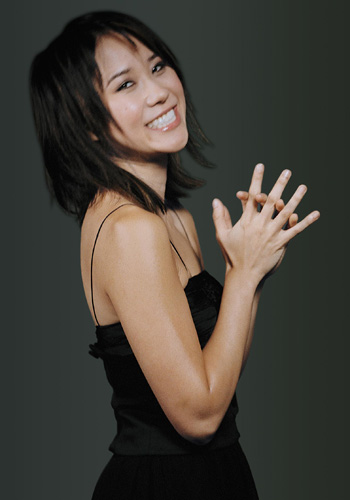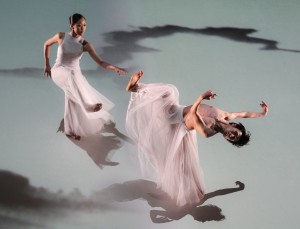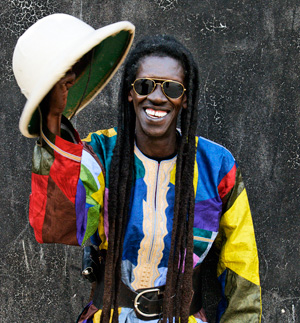[VIDEO] Six Reasons Why You Should Experience Kunqu
Joseph Lam is the director of the the Confucius Institute at the University of Michigan. We sat down to talk with him about kunqu, the Classical Opera of Globalized China, which will be performed by Suzhou Kun Opera Theater of Jiangsu Province this September.
In 2001, UNESCO declared kunqu, the 600-year-old grand opera of China, a “Masterpiece of the Oral and Intangible Heritage of Humanity.”
Joseph Lam’s Six Reason Why You Should Experience Kunqu:
1. Kunqu tells heartfelt and imaginative dramas. The Peony Pavilion, for example, tells how an elite, young lady finds love through her dream, death, and resurrection.
2. Kunqu gives unforgettable performances. Kunqu brings historical and fictive characters alive on stage. Experience how kunqu virtuosic actresses act, dance, sing, speak, and dress as Imperial Concubine Yang (719–756), one of four supreme beauties in Chinese history.
3. Kunqu demonstrates Chinese emotions and perspectives. The Jade Hairpin asks, for instance, how a talented and young man should choose between love or his career?
“Captured Alive” warns, what if a ghost of a woman still madly in love came out of her
grave to fetch her former living lover?
4. Kunqu is China’s fashionable and conspicuous consumption. Twenty years ago, kunqu was dying as a classical, but forgotten, theater. Now it is in the midst of a popular performance resurgence that educated, young, and successful Chinese fashionably and proudly claim as their own. Reflecting their modern tastes and realities, current kunqu
productions are grand and luxurious.
5. Kunqu is globally meaningful. As China continues its growth as a global superpower, it exports its performing arts as soft power and creative industries. Kunqu has become a branded manifestation of Chinese culture that global citizens need to know!
6. Kunqu is post-modernly controversial. It mixes traditional performance practices with contemporary acts, blends native aesthetics with imported ones, and packages
performances as both artistic expressions and commercial commodity. It is a 600-year-
old opera that thrives in 21st-century and globalized China. Kunqu is simultaneously
classical and avant-garde, perfectly reflecting today’s China.
11/12 Asia & World Series
Asia
UMS focuses its global programming on four different regions of the world — the Arab World, Africa, the Americas, and Asia — with one region enjoying a particular focus during each season. Following the celebration of the performing arts of the Americas in the 10/11 season, UMS turns its thematic focus to Asia, specifically highlighting artists from China, Taiwan, Inner Mongolia, and India.
Subscription packages go on sale to the general public on Monday, May 9, and will be available through Friday, September 17. Current subscribers will receive renewal packets in early May and may renew their series upon receipt of the packet. Tickets to individual events will go on sale to the general public on Monday, August 22 (via www.ums.org) and Wednesday, August 24 (in person and by phone). Not sure if you’re on our mailing list? Click here to update your mailing address to be sure you’ll receive a brochure.
Yuja Wang, piano
Sunday, October 9, 4pm
Hill Auditorium
Twenty-four-year-old Chinese pianist Yuja Wang is widely recognized for playing that combines the spontaneity and fearless imagination of youth with the discipline and precision of a mature artist. She made her UMS debut in January 2008, just months after graduating from the Curtis Institute of Music, and since then has spent each year criss-crossing the globe with a cavalcade of impressive debuts and awards, including the prestigious Avery Fisher Career Grant, given to select musicians destined for bright solo careers.
Program
Ravel | Miroirs
Copland | Piano Variations
Rachmaninoff | Selected Preludes
Brahms | Sonata No. 1 or No. 3
Water Stains on the Wall
Cloud Gate Dance Theatre
Lin Hwai-min, artistic director
Friday, October 21, 8pm
Saturday, October 22, 8pm
Power Center
Trained in tai chi, meditation, Chinese opera movement, modern dance, and ballet, Cloud Gate Dance Theatre performs a rich repertoire with roots in Asian myths, folklore, and aesthetics, all infused with a contemporary perspective. For this long-awaited UMS debut, Cloud Gate presents Hwai-min’s newest work, Water Stains on the Wall. “Water stains on the wall” is a popular metaphor that represents the highest state in the aesthetics of Chinese calligraphy. Hwai-min and dancers take off from this metaphor and create and abstract work of beauty and magic that stands sublimely on its own.
AnDa Union from Inner Mongolia
Wednesday, November 9, 7:30pm
Michigan Theater
Formed in 2003, AnDa Union’s 14 members all hail from the Xilingol Grassland area of Inner Mongolia, a semi-autonomous region of China. AnDa Union are part of a musical movement that is finding inspiration in old and forgotten folk music from the nomadic herdsman cultures of Inner and Outer Mongolia, drawing on a repertoire of music that has all but disappeared during China’s recent tumultuous past. Its members are accomplished singers and instrumentalists, performing on the traditional horse-head fiddle (tsuur), the maodun chaoer, a three-holed flute, as well as Mongolian versions of the dulcimer, zither, lute, and mouth harp.
Beijing Guitar Duo with Manuel Barrueco
Sunday, November 20, 4 pm
Rackham Auditorium
Meng Su and Yameng Wang are widely noted for their outstanding technique and artistic musicality. They first met at the Central Conservatory in Beijing, where they began studying with the acclaimed professor Chen Zhi as children. Both women have won the Tokyo International Guitar Competition (Yameng Wang won it at age 12), and have received heaps of acclaim and recognition at international guitar events and from other seasoned guitarists, including Sergio Assad who has written and dedicated works to them. In 2008, they went to study with Manuel Barrueco at the Peabody Conservatory of Music in Baltimore and officially established themselves as the Beijing Guitar Duo. Both individually and together, their impressive talents come together to create one of the most excited guitar duos on the scene today.
Chamber Ensemble of the Shanghai Chinese Orchestra
Friday, February 10, 8pm
Rackham Auditorium
The 20 members of the Shanghai Traditional Chamber Ensemble are drawn from the first large-scale modern orchestra of traditional instruments in China. While Chinese stars such as Lang Lang have brought new attention to Western classical music in China, this ensemble provides a window into the traditional Chinese classical music that dates back centuries.
Zakir Hussain and the Master Musicians of India
Fazel Qureshi, tabla and kanjira
Rakesh Chaurasia, bansuri
Dilshad Khan, sarangi
Navin Sharma, dholak
Abbos Kosimov, doyra
Meitei Pung Cholom Performing Troupe (Dancing Drummers of Manipur)
Thursday, April 12, 7:30pm
Hill Auditorium
Zakir Hussain is today appreciated both in the field of percussion and in the music world at large as an international phenomenon. A classical tabla virtuoso of the highest order, his consistently brilliant and exciting performances have not only established him as a national treasure in his own country, but have earned him worldwide fame. For this return appearance, he performs with a host of Indian classical music greats, as well as the dancing drummers of Manipur.
Other World Music
In addition to the events from Asia listed above, UMS presents Goran Bregovic and His Wedding and Funeral Orchestra, which combines a Serbian Gypsy Band, string ensemble, orthodox male choir, and two Bulgarian female vocalists in a wild ride in Hill Auditorium; flamenco star Diego El Cigala; Max Raabe and Palast Orchester, recreating the high style and musical glory of the Weimar era; and Senegalese singer/songwriter Cheikh Lô.
Goran Bregovic & His Wedding and Funeral Orchestra
A Serbian Gypsy Band, Classical String Ensemble,
Orthodox Male Choir, and Two Bulgarian Female Vocalists
Saturday, October 15, 8 pm
Hill Auditorium
“It was party time…a Balkan free-for-all, and the jam-packed auditorium went wild…” (The Jerusalem Post) Balkan music icon and acclaimed film composer Goran Bregovic celebrates the music of Europe’s Gypsy tradition. With a 20-piece ensemble consisting of a Serbian gypsy band, a classical string ensemble, an all-male choir, two Bulgarian female singers and Bregovic’s own electric guitar, the music blends raucous gypsy dance tunes with traditional Eastern European choral music, spinning it all through a rock ‘n roll cycle.
Diego El Cigala
Saturday, November 5, 8 pm
Michigan Theater
Diego is a famous flamenco singer who started off by singing for well-known flamenco dancers but has since “moved to the front,” which in flamenco slang means to sing on one’s own instead of accompanying a dancer. He has collaborated with a variety of musicians, including Bebo Valdés, the Cuban pianist and bandleader with whom he recorded Lágrimas Negras, an album that created a sensation in Spain, becoming one of the best-selling albums in that country’s history and receiving a pile of awards, including five Latin Grammy nominations and the New York Times’ 2003 “Album of the Year” honors.
Berlin Nocturne
Max Raabe & His Palast Orchester
Saturday, March 10, 8pm
Hill Auditorium
“Max Raabe and his 12-piece Palast Orchester are re-creating the music of the Weimar era with verve and class.” (Time Out New York) A nostalgic homage to the legendary nocturnal flair of the Weimar Era, the debonair Max Raabe embodies the high style and music glory of the 1920s and 1930s, all backed by his stellar 12-member band. His art lies in revealing the enigmatic intelligence, ambiguity, musical power and complexity of the “German chansons” from the turbulent Weimar Republic — and then shaking it up with a completely unexpected cover from the contemporary pop realm.
Cheikh Lô
Friday, April 13, 8pm
Michigan Theater
Cheikh Lô is one of the great mavericks of African music. A superb singer and songwriter, as well as a distinctive guitarist, percussionist, and drummer, he has personalized and distilled a variety of influences from West and Central Africa to create a style that is uniquely his own. After emigrating to Paris and then returning to Senegal in the late 1980s, Lô attracted both the attention of and comparisons to Youssou N’Dour, who produced two of his early albums. His signature blend of semi-acoustic flavors — West and Central African, funk, Cuban, flamenco — has been distilled into his most mature, focused, yet diverse statement today, with his husky, sensual voice sounding better than ever.
Return to the complete chronological list.






